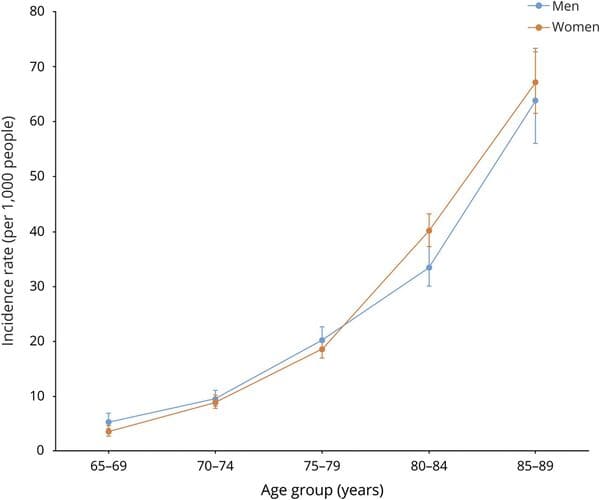Dementia Assessment Test
3 Min Free Dementia Assessment Test
Who Can Benefit From This Dementia Assessment Test?
The Dementia Assessment Test can benefit individuals who suspect they may be experiencing cognitive impairment or dementia symptoms. It can also be beneficial for caregivers, family members, or healthcare providers who are concerned about the cognitive function of someone in their care.
Additionally, the Dementia Assessment Test can be helpful for mental health professionals or healthcare providers who are assessing cognitive function as part of a diagnostic evaluation or treatment plan.

Dementia Assessment Test Accuracy

The accuracy of the Dementia Assessment Test depends on several factors, including the quality of the questions, the honesty and self-awareness of the person taking the test, and the interpretation of the results.
It’s important to note that the Dementia Assessment Test is not a substitute for a professional diagnosis by a licensed healthcare provider. While this test can provide helpful insights and indicators of possible cognitive impairment, a professional diagnosis requires a comprehensive evaluation that takes into account a variety of factors, such as the person’s medical history, current symptoms, and personal circumstances.
Additionally, the accuracy of the Dementia Assessment Test can be affected by a variety of factors, such as the age and education level of the person taking the test, and their cultural or linguistic background.
Types of Dementia Assessment Test
Mini-Mental State Examination (MMSE):
The MMSE is a commonly used screening test that assesses for different cognitive functions, including memory, attention, and language skills.
Montreal Cognitive Assessment (MoCA):
The MoCA is a more detailed cognitive screening test that assesses for different cognitive domains, including attention, memory, language, and visuospatial skills.
Functional Activities Questionnaire (FAQ):
The FAQ is a self-report questionnaire that assesses a person’s ability to perform activities of daily living, such as bathing, dressing, cooking, and managing finances. It is used to evaluate the functional impact of cognitive impairment.
Clock Drawing Test (CDT):
The CDT assesses for different cognitive functions, such as visuospatial skills, memory, and executive functioning, and involves asking the person to draw a clock face and set it to a specific time.
Geriatric Depression Scale (GDS):
The GDS is a self-report questionnaire that assesses the presence and severity of depression in older adults. Depression is a common comorbidity in people with dementia, and this tool can help identify and treat it.
Neuropsychological Testing:
Comprehensive assessment of cognitive functioning that evaluates a range of domains, including memory, attention, language, executive function, and visuospatial skills. It is often used to diagnose dementia and monitor changes in cognitive function over time.
Treating Dementia
Dementia is a chronic and progressive condition that currently has no cure. However, there are several approaches to managing symptoms and improving quality of life for people with dementia. Here are some treatment options:
- Medications: Medications can be used to manage symptoms of dementia, such as memory loss, agitation, depression, and sleep disturbances. Cholinesterase inhibitors, such as donepezil, rivastigmine, and galantamine, are commonly used to treat cognitive symptoms in Alzheimer’s disease. Memantine is another medication used to treat moderate to severe Alzheimer’s disease and other forms of dementia.
- Cognitive Stimulation Therapy: Cognitive stimulation therapy involves a series of structured group activities designed to promote cognitive functioning, communication, and socialization. These activities may include puzzles, reminiscence therapy, and physical exercise.
- Occupational Therapy: Occupational therapy can help people with dementia to maintain their ability to perform activities of daily living, such as dressing, grooming, and cooking. An occupational therapist can provide recommendations for home modifications and assistive devices to make daily tasks easier.
- Music Therapy: Music therapy can be a powerful tool in managing symptoms of dementia, such as anxiety, agitation, and depression. Listening to music can also help evoke memories and promote socialization.
- Lifestyle Changes: Lifestyle changes, such as a healthy diet, exercise, and social engagement, can help to improve overall well-being and slow the progression of dementia. Caregivers can also benefit from education and support to manage the challenges of caring for a person with dementia.
- Clinical Trials: Clinical trials are ongoing research studies that aim to test new treatments for dementia. People with dementia may be eligible to participate in these trials, which can provide access to new and potentially effective treatments.

